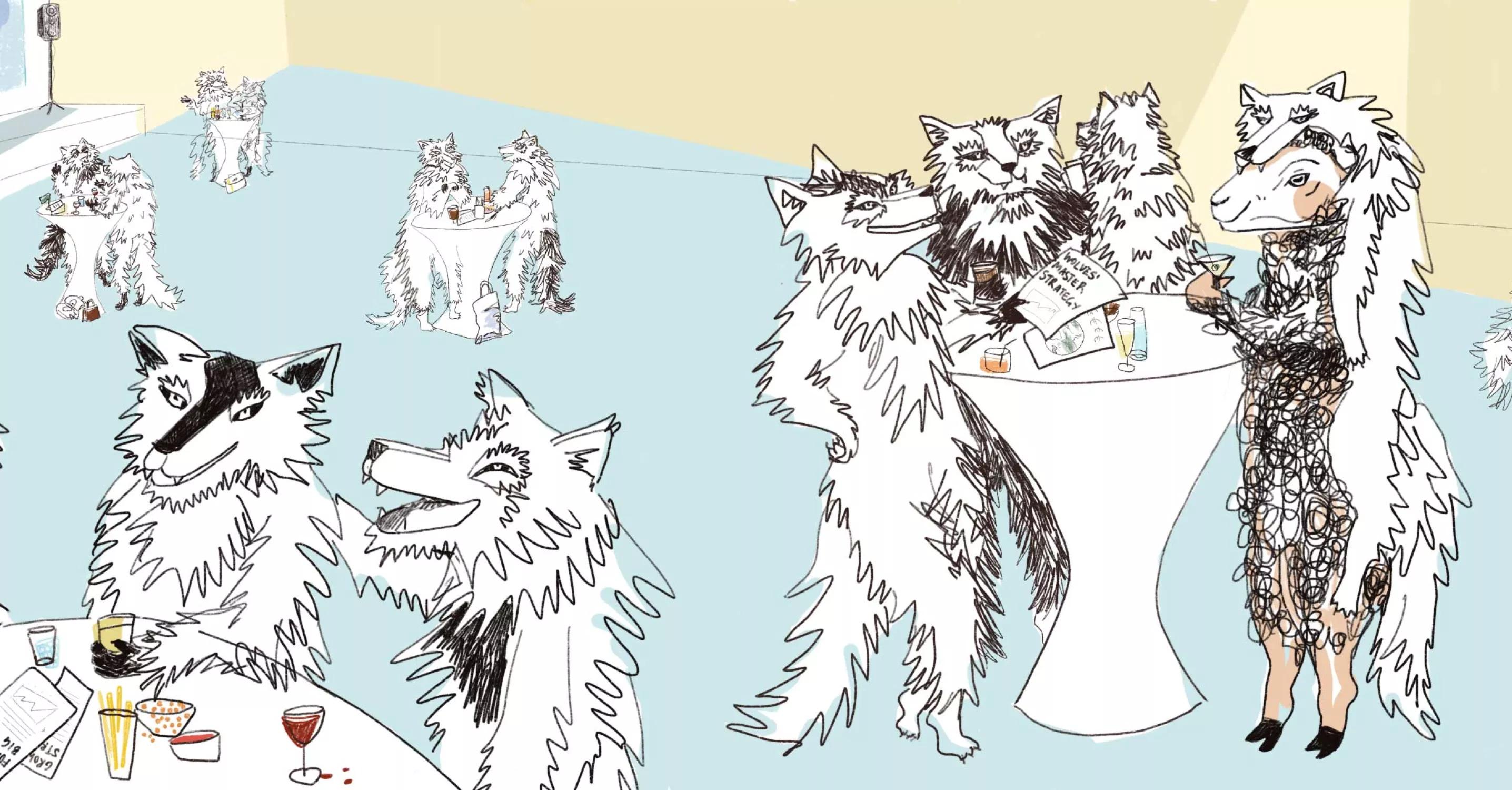We, Social-Profit Marketers, Are Sheep in Wolf’s Clothing
As marketers, we struggle with the image of being ruthless wolves. Gentle social-profit organisations sometimes shy away from this. Wrongly so. We too want to build a better world.

Running into an old classmate was a bit of a shock. “A mar-ket-ing agency, Sam, you of all people?” She works in the social sector herself and almost spits out my employer. “I'd never have given you that…”
Why not? Is it not in line with my incense-burning years as a do-gooder? Was I once too socially-minded in youth work and development aid to go into the anti-social market now? I explain to her that I am very consciously pulling the card of social profit. And how this is a radical choice on the part of our marketing agency Plant a Flag.
The wolves of Wall Street
I checked with the people close to me. When you speak of marketing, the standard image still pops up of charlatans selling castles in the air. Woman-unfriendly Mad Men touting lethal cigarettes. At any cost and always going for more. The word says it all, right? Marketing. A sly salesmen markets a product or service and, by definition, sides with capital. Unleash a marketer on a sector like healthcare, and security firms will soon be running the shelter of the homeless. That’s the overall image.
Indeed, there are some wolves of Wall Street running around in sheep's clothing. For the non-profit field, they package marketing & sales as communications & fundraising. Or they talk about social marketing, along the lines of social profit and social economy, which sounds more congenial.
However, my high school friend is missing out on things if she turns her back on marketers at any rate. Because I see something else, every day, with our soft-sector clients. Marketing works. In an industry where time and resources are scarce, marketing makes a bountiful difference.
Survive with social profit
Indeed, the challenges facing our NGOs, charities, foundations and movements are not slight. On January 1, 2018, Belgium counted over 150,000 non-profit organisations, according to the Graydon study agency. From small, dormant NPOs to companies with 9,000 employees. Almost all of them are seeing their subsidies decrease. According to Ipsos, 1 in 5 associations is struggling with financial problems. And 17% of associations with paid personnel have had to lay people off in the past year. In turn, the Vrije Universiteit Amsterdam calculated that charities’ commercial income is on the rise. The generosity of traditional donors in the Netherlands has been falling relative to gross domestic product for the past 20 years.
How do you bolster that? How do you keep your organisation healthy if profit is not your most important KPI (key performance indicator)? Since May 1, 2018, the law considers NPOs as enterprises. So how do you ensure sufficient social profit to tinker with society while staying afloat yourself?
Small fish, big impact
Plant a Flag’s answer? Strategy. With more opportunities than ever to reach your members, citizens, volunteers or donors—your customers, so to speak—smart choices become key. Because in short, you have to do more with less.
This is why Plant a Flag works exclusively for the small fish. Every slight but clever marketing effort should have a big impact for our SMEs and NPOs. That is the strategic choice we have to make.
Plant a Flag believes in many small cogs that set big things in motion. I read it here every day, printed metres wide on the wall of our Studio: “The next big thing will be a lot of small things.” It is our responsibility as marketers to help build that better world. On sandals or on trainers, it doesn't matter. We feel at home in every market.
And so, we steal the marketing tricks of the big boys to boost small enterprises. You may call us Robin Hood on sneakers.
The next time I run into an old classmate, I will introduce myself as a do-gooder, without blinking an eye. Or as a market improver. “Hi. I work at Plant a Flag, we are the sheep in wolf’s clothing.”
Would she be surprised?


 Sam Verhaert
-
Non-profit strategist
Sam Verhaert
-
Non-profit strategist








